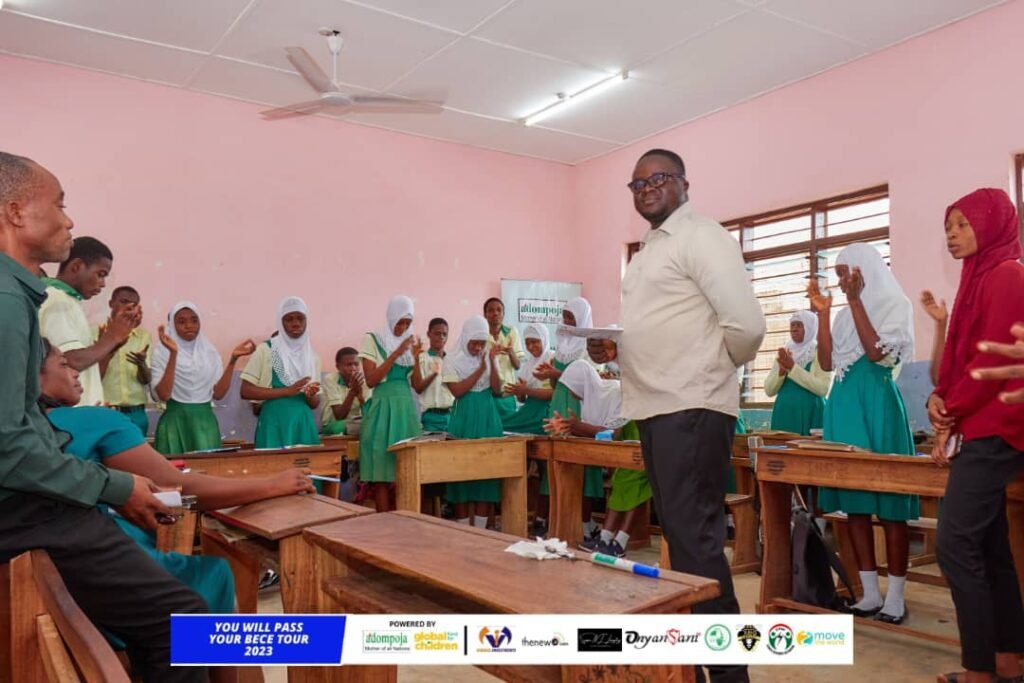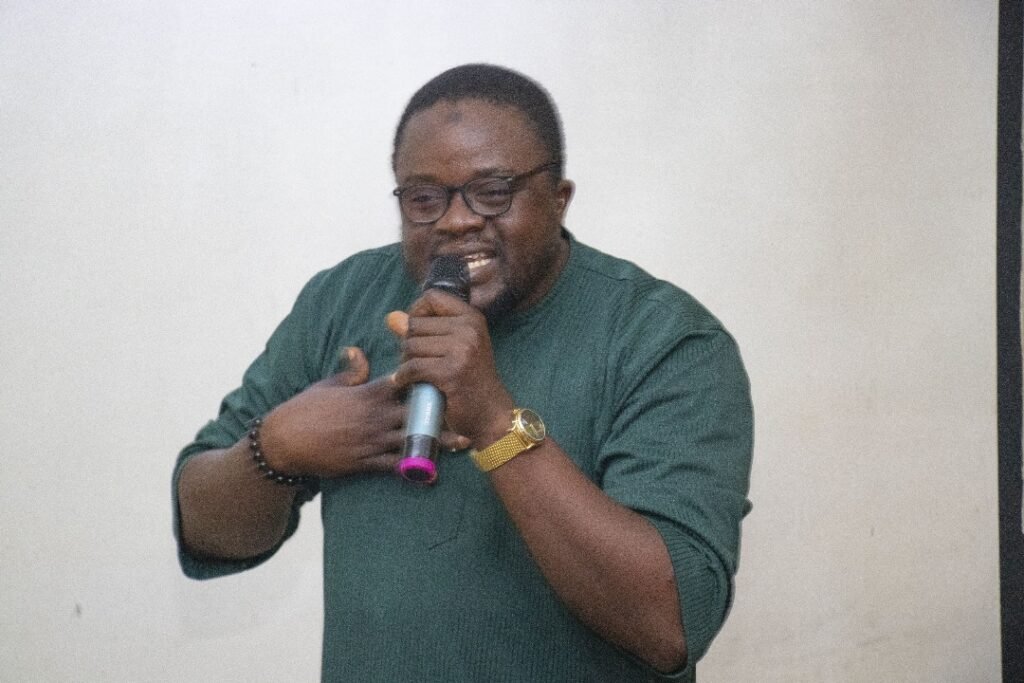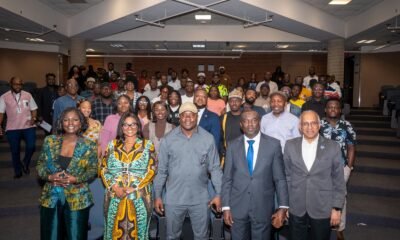News
Implications of easing restrictions on public gathering
The expectations of some Ghanaians were met last Sunday evening when the President, Nana Addo Dankwa Akufo-Addo announced the easing of restrictions on public gathering in the country under the observance of strict health protocols amid the COVID-19 pandemic.
However, some have also expressed disappointment over the restrictions to the churches and mosques as they complain bitterly that limiting the gathering to 100 members won’t work for them.
While the leadership of most churches welcome the directive as a step in the right direction as it would enable members to fellowship with one another after over two months of being under lockdown, others are not so much enthused about the announcement. The leadership of those churches have, therefore, decided to continue to hold virtual services for their members.
It is obvious that, it would be quite difficult for the big churches to control the number of attendees, as social gathering is to be allowed under certain stringent conditions hence their decision to continue with their virtual services.
The President made it clear that those who flout the directives would be sanctioned and the leaders of such religious organisations would be held liable.
For those in the hospitality industry,the decision by the government to lift the ban on public gathering was an answer to their prayers because at least their businesses would bounce back to help them make some gains.
In the educational sector final-year students would heave a sigh of relief as they can now continue with their studies and refresh their memories before they write their final examinations after being home for some time now.
The lifting of the restrictions came with its own attendant directives that must be adhered to in order to combat the spread of the coronavirus (COVID-19) disease in the country. Currently, confirmed cases of the virus in Ghana have hit 8,548 with 3,132 recoveries and 38 deaths.
For religious gathering which took effect yesterday, June 5, 2020, the Chieftaincy and Religious Affairs Minister, Mr Samuel Kofi Dzamesi during a media briefing announced a set of advisories following the resumption of religious activities.
Among these advisories older persons and people of any age with underlying medical conditions such as diabetes, liver disease, and asthma are advised to stay away from attending such services.
Now that the lockdown on public gathering has been partially lifted, it implies that the citizenry would have to be very vigilant and go strictly by the comprehensive guidelines spelt out by the government as community infection is now on the ascendancy.
Any careless mistakes will have dire consequences on individual lives. Thankfully, children have been exempted from having children services since it would be difficult to control them and keep social distancing.
Now that the ban on social gathering has been lifted with the number of attendees increased from 25 to 100, it implies that more weddings, funerals, parties and other social functions would be organised putting more people at risk.
For some people, life must go on normal despite the coronavirus pandemic but the fact is we are not in normal times, therefore, there is the need to put in place more safety measures to save lives.
The government should provide the necessary items needed for final-year students to protect themselves. Although the government has announced that Day students in boarding schools will be made boarders, the Spectator proposes that transport arrangements should also be made for students who attend Day schools to facilitate their movement to and from school in these difficult times.
We express much concern over the fact that some citizenry are still careless and do not adhere to the World Health Organisation (WHO) protocols and health directives provided by the government and the Ghana Health Service (GHS) for their own safety. It behoves on all to be responsible and vigilant as the virus is no respecter of persons.
News
Man narrowly escapes death, accused of stealing 19 fowls, a dog
A 42-year-old man, Kwabena Otoo, narrowly escaped death on the dawn of Monday when residents of Assin Adubiase lynched him, having been accused of stealing 19 fowls and a dog.
“I heard the commotion from my house,” said a resident who wished to remain anonymous. “By the time I reached the scene, there was already a crowd surrounding him. His pleas for mercy were drowned by angry voices.”
Otoo, bleeding profusely and severely injured, might have lost his life if not for a timely distress call to the Assin Fosu Divisional Police Command.
Officers arrived around 4am, pushing through the mob to rescue the battered man.
“We found him in critical condition,” shared one responding officer. “Every minute counted in getting him medical attention.”
Now recovering at the Assin Fosu Polyclinic, Otoo suffered physical wounds but also faces uncertain future as investigations continue.
Medical staff report indicated that he suffered multiple injuries requiring immediate treatment.
Community members claim Otoo’s contradictory answers during questioning triggered their suspicions and subsequent assault.
One witness explained that, “people here have lost too much to thieves… frustration has been building for months.”
The Police have confirmed Otoo is from neighbouring Assin Odumase and are calling for anyone missing fowls or a dog to come forward as part of their investigation.
“This could have ended in tragedy,” warned a police spokesperson. “We understand community frustrations, but mob justice is never the answer. We urge citizens to report crimes rather than taking matters into their own hands.”
From Kingsley E. Hope, Kumasi
News
Abubakar Zico Newton changing educational narrative in Madina Zongo

Chancing on a report indicating that people with pre-school experience were likely to be in school far more than those without pre-school education was the spark Ishaq Abubakar Zico Newton needed to turn around the fortunes of young people in Madina Zongo.


Growing up in the same community where pre-school was not valued as he himself was not a beneficiary, Ishaq Abubakar Zico Newton decided to change the narrative of the children with the help of his mother’s already established foundation.
The foundation started on the compound of his home as an afternoon classes for children in the community.
“It was the brainchild of my aunt who never had the opportunity to go to school but always felt that education was going to be the game-changer in the near future.”


With this in mind, his aunt started a free after school classes in the afternoon.
The classes helped children with their home works as their parents could neither read nor write. This single act by his aunt really impacted the lives of most children in the community.

“My mother took over after the death of my aunty when she returned from Germany and thought it wise to create a foundation around it. She named it ‘Mother for all Foundation.’’’
She later took the foundation to another level by supporting the foundation with books for the children and paying the teacher to continue the afternoon classes.
In 2010, King Zico, as he is affectionately called in the community, felt the need to support his mother’s idea and take the foundation a notch higher.

With his educational background, he turned it into a pre-school for children in Madina Zongo where children from the ages of two to five years have access to free pre-school education.
Currently, there are about 250 children in the school which initially started with only two children.
“The goal of the foundation is to educate and also help improve on the educational standard of the people within Madina Zongo,” he said.
According to Mr Newton, most of the people supporting the foundation were beneficiaries of the afternoon classes started by his aunt.

He said the foundation embarked on several projects including a ‘Readcamp’ aimed at enhancing the literacy skills of school pupils, a play-based training programme for educators and facilitators with innovative tools to transform classrooms.
“Other projects included mask up and sanitise campaign and covid-19 food relief project,” he stated.
He said that over the period of eight years, close to thousand youths and children have had their lives transformed through the foundation.
Background
Zico loves to describe himself as Zongo boy who at a point realised that actors of change are community people who wish to see the change in their communities.
He grew up from a very deprived family where he and his siblings as well as friends had to go look for mangoes in the bush and sell.
At other times “we looked for ‘alumi’ in the gutters and in people’s homes and at times we have just pick peoples cooking utensils at their blind side, crash them and sell,” adding that “that was how we survived.”
Education
King Zico never had a pre-school experience. He started school at Gospel International School in Madina Estates. After owing so much in terms of fees, he secured a scholarship from the school.
This followed the headmaster’s decision to allow him attend the school for free because it was obvious he couldn’t pay.
He move from there to the Faith Community Baptist School where he had my Junior High School (JHS) education

King Zico continued to the West African Secondary School (WASS) but could not write the final examination because “my name was synonymous to school fees arrears.”
King Zico later registered for Nov/ Dec and continued to the Institute of Professional Studies (IPS) now University of Professional Studies, Accra (UPSA) where he studied Diploma in Business Studies (DBS) with accounting option.
“I was of the hope that I will be able to secure a job with the certificate, but unfortunately, I did not, so I ended up on the streets again and did some basic jobs and finally enrolled myself into the African University College of Communication.’’
Hobby
At his spare time, King Zico loves to listen to music and enjoys rice and stew at any given time.
By Esinam Jemima Kuatsinu







